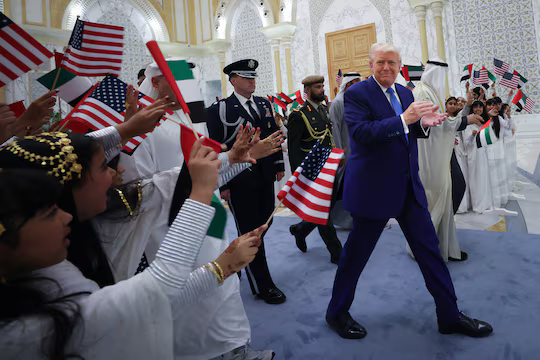Saudi Arabia has made bold moves to position itself as a global leader in artificial intelligence infrastructure, striking major deals with US tech giants and unveiling plans for massive data centers.
However, despite the financial firepower and diplomatic backing driving these initiatives, the country faces a critical challenge: a shortage of talent and software innovation that could hinder the success of its AI ambitions.
At the center of this effort is a partnership with Nvidia Corp., one of the leading manufacturers of AI chips. Together, they plan to build one of the world’s largest AI-focused data centers in Saudi Arabia, capable of delivering 500 megawatts of computing power—on par with or exceeding facilities run by US tech titans like Google and Microsoft. By 2030, the country intends to nearly quadruple that capacity.
These developments were announced with fanfare during a high-profile summit in Riyadh, attended by top figures in global technology such as Elon Musk, OpenAI CEO Sam Altman, and Nvidia CEO Jensen Huang. Major US companies including Amazon, Cisco, and AMD have also signed on as partners. All of this is part of the Saudi government’s Vision 2030 plan, which aims to diversify the economy away from oil and into high-tech sectors.
The Saudi approach is being centrally orchestrated by its sovereign wealth fund through a new company, Humain, which is tasked with building and operating AI infrastructure, cloud services, and the applications that run on them. Yet, it is the last part—developing services and applications—that could prove the most difficult.
Despite its infrastructure ambitions, Saudi Arabia lacks the software development ecosystem that underpins successful AI innovation. Unlike Silicon Valley or China’s growing AI hubs, the kingdom does not yet have a robust community of engineers, researchers, or venture capital networks with deep tech experience. The scarcity of skilled workers has already led to inflated salaries, making it harder to build sustainable, homegrown AI firms. Even the flagship NEOM project has faced delays, partly due to workforce shortages.
The situation evokes comparisons with China, which also experienced a wave of AI infrastructure construction. While China saw many of its data centers go underutilized—an estimated 80% of computing resources remained idle—it still fostered a vibrant AI ecosystem. This success was driven by open-source collaboration and widespread application across sectors, helping companies like Alibaba and DeepSeek narrow the gap with US firms in AI capabilities.
Saudi Arabia’s model, by contrast, is even more top-down than China’s. It has yet to develop the grassroots innovation or talent pipelines that are essential for a thriving AI sector. Without significant investment in education, research, and software entrepreneurship, there’s a real risk that Saudi Arabia could end up with powerful, but largely unused, infrastructure—server farms gathering dust rather than powering breakthroughs.
Recent geopolitical developments have further accelerated the region’s role in AI. Under the Trump administration, US export restrictions were lifted, enabling Gulf nations to import large volumes of advanced chips. Trump’s trip to the Middle East, accompanied by prominent tech executives, highlighted a shift in policy: from cautious engagement under President Biden to a more aggressive embrace of Gulf countries as AI partners. Deals were announced with Saudi Arabia, Qatar, and the UAE involving chip sales, rare mineral mining, and data center construction.
These partnerships are mutually beneficial. For US tech companies, Middle Eastern investments offer capital and energy resources needed for AI’s compute-intensive demands. For Gulf states, they provide access to cutting-edge technology. But the long-term success of these relationships hinges on more than hardware.
As experts point out, exporting AI infrastructure to authoritarian regimes without stringent safeguards carries strategic and ethical risks. While deals may include conditions to prevent technology from being redirected to adversaries like China, enforcement remains challenging.
With input from the Washington Post and Bloomberg.










The latest news in your social feeds
Subscribe to our social media platforms to stay tuned